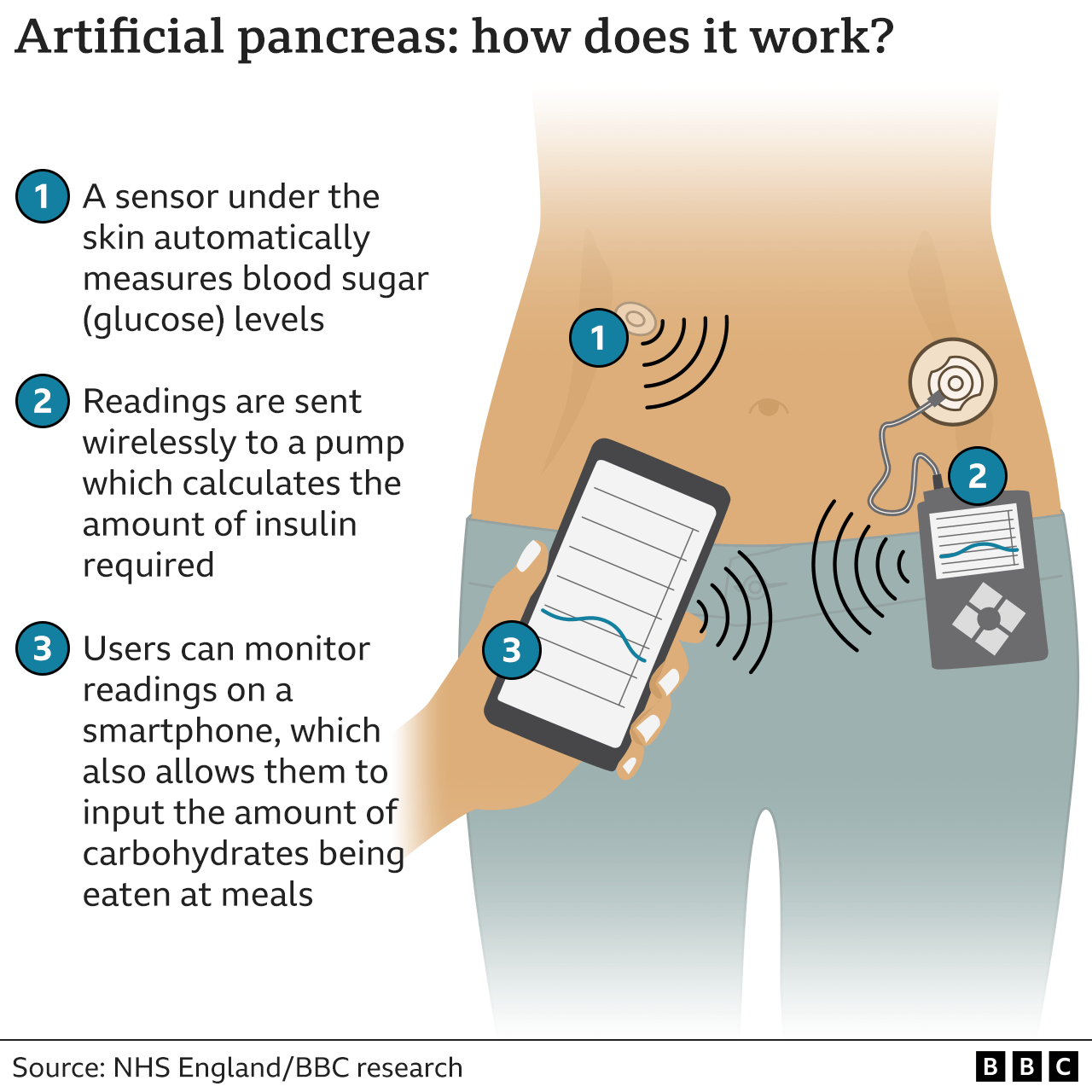What is the new ‘artificial pancreas’ for diabetes?
Nearly 300,000 people in the UK have type 1 diabetes, including about 29,000 children. It means their pancreas fails to produce insulin, the hormone that helps turn food into energy – and controls the sugar level in the blood.
They have to closely monitor levels of sugar, or glucose, in the blood and give themselves insulin every day of their lives, via either injections or a pump.
Butr now tens of thousands of people with type 1 diabetes in England are to be offered a new technology, dubbed an ‘artificial pancreas’, to help manage the condition. And at the end of last year, the National Institute of Health and Care Excellence (NICE) said the NHS should start using it.
The system uses a glucose sensor under the skin to automatically calculate how much insulin is delivered via a pump.
Later this month, the NHS will start contacting adults and children who could benefit from the system. But NHS bosses warned it could take five years before everyone eligible had the opportunity to have one.
This is because of challenges sourcing enough of the devices, plus the need to train more staff in how to use them.
In trials, the technology – known as a hybrid closed loop system – improved quality of life and reduced the risk of long-term health complications. And this new technology does that automatically, virtually mimicking the function of a pancreas – although it still requires information on food intake to be inputted at mealtimes to work accurately.

The new technology will help prevent people with type 1 diabetes experiencing life-threatening low or high blood glucose levels, which can lead to unconsciousness and can even be fatal.
And it also helps to improve overall blood sugar control, and decreases the chance of complications – like heart disease, eyesight problems and chronic kidney disease (CKD; which can lead to dialysis or a kidney transplant). There is more information on CKD on CKD Explained.
Gemma Lavery, 38, from Plymouth, who is using the device after being part of an NHS pilot scheme, says it has transformed her life: “I no longer have to worry about work-related stress affecting my blood-glucose levels, as the closed loop helps to sort this out before it becomes a problem,” she says.
“I can have a full night’s sleep without worrying about regular low glucose levels hindering my morning routine and I have found that my diabetes is more stable.”

